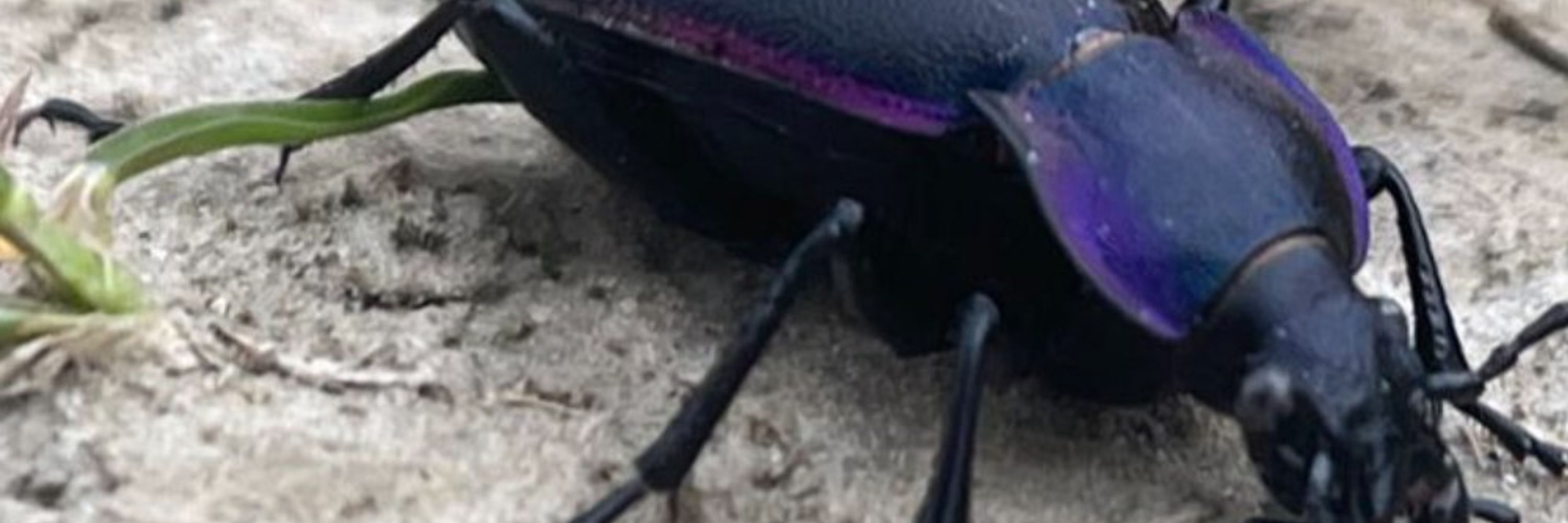
Nat Duffus
@natduffus.bsky.social
PhD student at University of Oxford investigating the ecological outcomes of Biodiversity Net Gain in England
she/her 🏳️🌈🏴
she/her 🏳️🌈🏴
this post tells such a story...
October 7, 2025 at 7:43 AM
this post tells such a story...
Congrats! Sticker time! :') 🪲
September 30, 2025 at 2:25 PM
Congrats! Sticker time! :') 🪲
If you're an ecologist (or just care about nature), then I'd strongly urge you to respond to this consultation with your views! I think the proposed changes to the SSM coupled with the proposed increased scope of the SSM could lead to some terrible ecological outcomes. 9/9
June 3, 2025 at 9:48 AM
If you're an ecologist (or just care about nature), then I'd strongly urge you to respond to this consultation with your views! I think the proposed changes to the SSM coupled with the proposed increased scope of the SSM could lead to some terrible ecological outcomes. 9/9
But I really question the assumptions behind fixing habitat condition at poor at baseline? Small sites are not inherently of low ecological quality, so surely a more precautionary approach to fixing habitat condition would be appropriate? 8/
June 3, 2025 at 9:48 AM
But I really question the assumptions behind fixing habitat condition at poor at baseline? Small sites are not inherently of low ecological quality, so surely a more precautionary approach to fixing habitat condition would be appropriate? 8/
... and "moderate" for the target condition of enhanced habitats. Given the challenges facing the delivery of small, non-secured, non-significant, on-site habitat enhancements, I'm broadly supportive of fixing the enhancement condition at moderate or indeed poor. 7/
June 3, 2025 at 9:48 AM
... and "moderate" for the target condition of enhanced habitats. Given the challenges facing the delivery of small, non-secured, non-significant, on-site habitat enhancements, I'm broadly supportive of fixing the enhancement condition at moderate or indeed poor. 7/
But if development must occur there, then it should *not* be using a metric which uses the above proposed habitat 'classification' system.
The SSM also does not require an on-the-ground condition assessment and this consultation proposes fixing the condition at "poor" for baseline habitats 6/
The SSM also does not require an on-the-ground condition assessment and this consultation proposes fixing the condition at "poor" for baseline habitats 6/
June 3, 2025 at 9:48 AM
But if development must occur there, then it should *not* be using a metric which uses the above proposed habitat 'classification' system.
The SSM also does not require an on-the-ground condition assessment and this consultation proposes fixing the condition at "poor" for baseline habitats 6/
The SSM also does not require an on-the-ground condition assessment and this consultation proposes fixing the condition at "poor" for baseline habitats 6/
Furthermore, the consultation asks whether the SSM should be used on sites with protected habitats or species. I'd point to the mitigation hierarchy and suggest that development does not happen on these sites to begin with. 5/
June 3, 2025 at 9:48 AM
Furthermore, the consultation asks whether the SSM should be used on sites with protected habitats or species. I'd point to the mitigation hierarchy and suggest that development does not happen on these sites to begin with. 5/
I seriously question what system could be devised where non-ecologists can easily identify the habitats. What is left? Grassland, woodland, wetland, or scrub? Surely the solution here is upskilling and more guidance, not stripping out any ecology from a metric intended to measure biodiversity? 4/
June 3, 2025 at 9:48 AM
I seriously question what system could be devised where non-ecologists can easily identify the habitats. What is left? Grassland, woodland, wetland, or scrub? Surely the solution here is upskilling and more guidance, not stripping out any ecology from a metric intended to measure biodiversity? 4/
I worry that this would result in all habitats being replaced with what is cheap to deliver and affords the most units - e.g. the already ubiquitous other neutral grassland. There is also a review proposed, to "ensure that all habitats within the SSM can be easily identified by non-ecologists". 3/
June 3, 2025 at 9:48 AM
I worry that this would result in all habitats being replaced with what is cheap to deliver and affords the most units - e.g. the already ubiquitous other neutral grassland. There is also a review proposed, to "ensure that all habitats within the SSM can be easily identified by non-ecologists". 3/
There are proposed changes to the trading rules which would either remove them entirely, or allow the loss of any medium distinctiveness habitat to be compensated with any other medium distinctiveness habitat (the SSM only covers low and medium dis. habitats). 2/
June 3, 2025 at 9:48 AM
There are proposed changes to the trading rules which would either remove them entirely, or allow the loss of any medium distinctiveness habitat to be compensated with any other medium distinctiveness habitat (the SSM only covers low and medium dis. habitats). 2/

